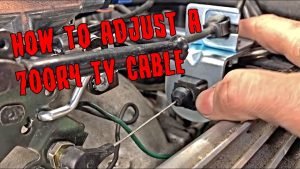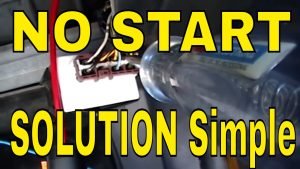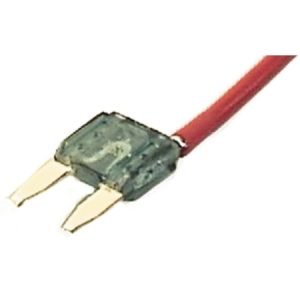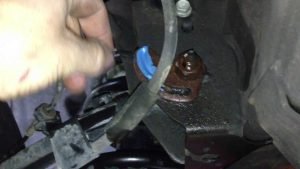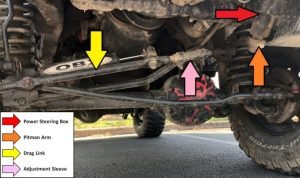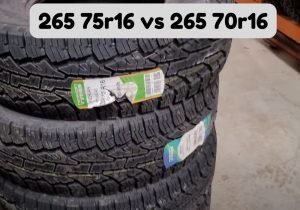Contents
How Much Does a Fuel Pump Cost? A Comprehensive Guide
Replacing a fuel pump is a significant car repair, and understanding the cost is crucial for budgeting. This guide breaks down the expense, helping you navigate this potentially pricey situation. We’ll explore the factors influencing the final bill and offer tips to save money where possible.
Understanding the Cost Breakdown:
The total cost of replacing a fuel pump isn’t a single, easily quoted figure. It depends on several key factors:
-
Vehicle Make and Model: Luxury cars and newer models generally have higher labor and part costs. Older, more common vehicles will typically be cheaper to repair. The accessibility of the fuel pump also plays a role; some vehicles require significantly more labor to access it.
-
Labor Costs: This is often the largest portion of the bill. Mechanic labor rates vary widely based on location (urban areas tend to be more expensive) and the shop’s reputation. Independent shops are frequently more affordable than dealerships.
-
Part Cost: The fuel pump itself varies in price depending on the brand and quality. OEM (Original Equipment Manufacturer) parts are generally more expensive but offer a better fit and longer lifespan. Aftermarket parts are more budget-friendly but might not last as long.
-
Additional Repairs: Sometimes, a failing fuel pump highlights other underlying issues. The mechanic might find problems with the fuel filter, fuel lines, or other components, adding to the overall cost.
Estimating the Cost:
While a precise figure is impossible without knowing your specific vehicle and circumstances, here’s a general range:
- Parts: $100 – $500 (significantly more for high-performance vehicles or those requiring specialized pumps).
- Labor: $200 – $800 (this is highly variable based on location and mechanic rates).
Therefore, the total cost could range from $300 to $1300 or even more in extreme cases.
Step-by-Step Guide to Finding the Cost:
-
Identify Your Vehicle: Knowing the year, make, and model of your car is essential. This information allows mechanics to accurately quote the cost of parts and labor.
-
Get Multiple Quotes: Don’t settle for the first quote you receive. Contact several reputable mechanics or repair shops (both dealerships and independent shops) to compare prices. Be sure to specify that you need a quote for fuel pump replacement.
-
Clarify the Quote: Ensure the quote includes all costs: parts, labor, taxes, and any potential additional repairs. Ask if the quote includes the use of OEM or aftermarket parts.
-
Review the Warranty: Inquire about the warranty on both parts and labor. Understanding the warranty period is crucial in case issues arise after the repair.
-
Choose a Reputable Mechanic: Choose a shop with good reviews and a strong reputation. Check online reviews and ask for references.
Tips to Save Money:
-
Shop around for parts: You might be able to find slightly cheaper parts online or at auto parts stores, but always ensure they are from a reputable source. Never compromise on quality to save a few dollars.
-
Consider DIY (Do It Yourself): Replacing a fuel pump is a challenging task that requires mechanical skills and specialized tools. Only attempt DIY if you have the necessary experience and are comfortable working with fuel systems. Incorrect installation can be dangerous.
-
Negotiate: Don’t be afraid to negotiate the price, especially if you’ve obtained multiple quotes.
Common Mistakes to Avoid:
-
Ignoring the warning signs: Don’t ignore symptoms like difficulty starting, engine hesitation, or a sputtering engine. These could indicate a failing fuel pump, and early intervention can often save money in the long run.
-
Choosing the cheapest option: While budget is a factor, don’t prioritize price over quality. A cheaper, lower-quality fuel pump might fail sooner, leading to more expensive repairs down the line.
-
Not getting a detailed quote: A vague quote can lead to unexpected expenses. Always ensure the quote covers all aspects of the repair.
By understanding the factors influencing fuel pump replacement costs and following these tips, you can be better prepared to manage this significant automotive repair. Remember, proactive maintenance and choosing a reliable mechanic are key to avoiding unnecessary expenses.
FAQ
Q. How much does a fuel pump cost?
A. The cost of a fuel pump varies greatly depending on several factors, including the make and model of your vehicle, whether you buy an OEM (Original Equipment Manufacturer) part or an aftermarket part, and where you purchase it. Generally, you can expect to pay anywhere from $100 to $1000 or more. A simple, common fuel pump might cost closer to $100-$300, while more complex pumps for newer vehicles or high-performance cars could easily reach $500-$1000 or even more.
Q. What factors influence the price of a fuel pump?
A. As mentioned, several factors determine the price. The vehicle’s make and model is crucial; luxury cars and trucks will usually have more expensive parts. The type of fuel pump also matters (in-tank, external, high-pressure, etc.). OEM parts are typically more expensive than aftermarket equivalents but often come with a longer warranty. Finally, the retailer’s pricing and any applicable labor costs will significantly impact the final cost.
Q. Is it more expensive to buy an OEM fuel pump or an aftermarket one?
A. OEM (Original Equipment Manufacturer) fuel pumps are usually more expensive than aftermarket options. OEM pumps are the parts made by the same manufacturer that originally equipped your vehicle. They’re often seen as higher quality and more reliable, backed by a manufacturer’s warranty. Aftermarket pumps are made by third-party manufacturers and tend to be cheaper, but quality can vary significantly.
Q. Does labor cost affect the total cost significantly?
A. Yes, labor costs for fuel pump replacement can significantly increase the overall expense. The labor involved can be extensive, requiring the removal and potentially replacement of the fuel tank in some cases. Depending on your location and mechanic, labor charges can easily range from $200 to $800 or more. Therefore, the total cost is often far greater than the part itself.
Q. What is included in the price when I buy a fuel pump?
A. Typically, the price you see for a fuel pump only reflects the cost of the pump itself. It does not include labor costs for installation, any additional parts that might be necessary during the repair (such as gaskets or fuel lines), or applicable taxes. Be sure to get a complete quote from your mechanic that includes all these costs before work begins.
Q. Can I install a fuel pump myself?
A. While some individuals with mechanical experience might attempt a fuel pump replacement themselves, it’s generally not recommended unless you have extensive automotive repair knowledge and experience. Working with fuel systems requires caution due to the flammable nature of gasoline; a mistake could result in injury or even fire. Professional installation is recommended for safety and to ensure the job is done correctly.
Related Articles
DIY Brake Pad Replacement: A Step-by-Step Guide for Beginners
DIY Brake Pad Replacement: A Step-by-Step Guide for Beginners Recommended Product: Do-It-Yourself Car Repair And Maintenance Bible For Beginners: A Ha…
How to Clean a Car Air Conditioner Filter
How to Clean Your Car’s Air Conditioner Filter: A Breath of Fresh Air Is your car’s AC blowing warm air, smelling musty, or just not perfo…
How to Diagnose a Car Battery Problem
How to Diagnose a Car Battery Problem: A Step-by-Step Guide Is your car refusing to start? A dead or dying battery is often the culprit. Before you ca…
Affiliate Disclosure: As an Amazon Associate, I earn from qualifying purchases made through links on this site.


